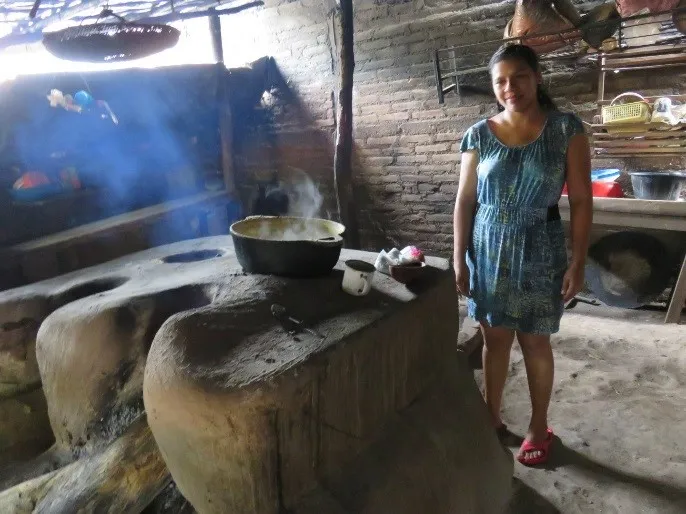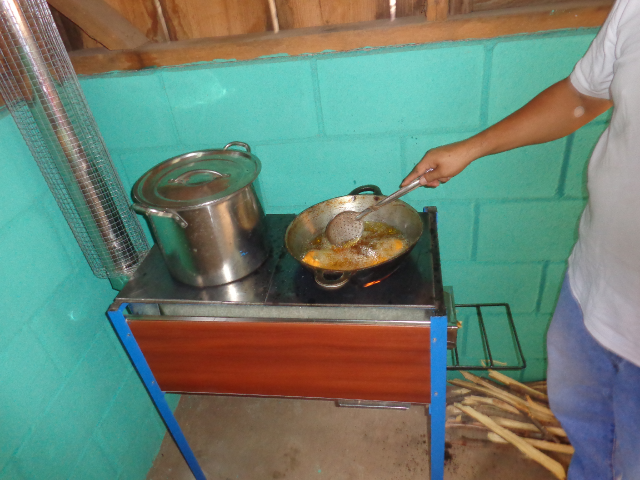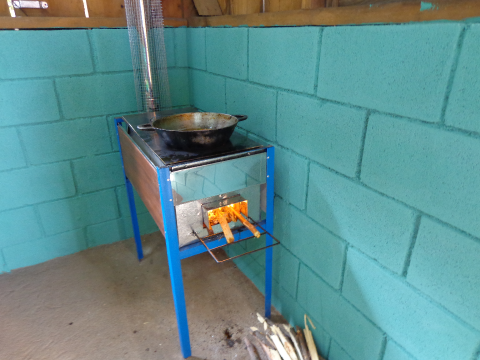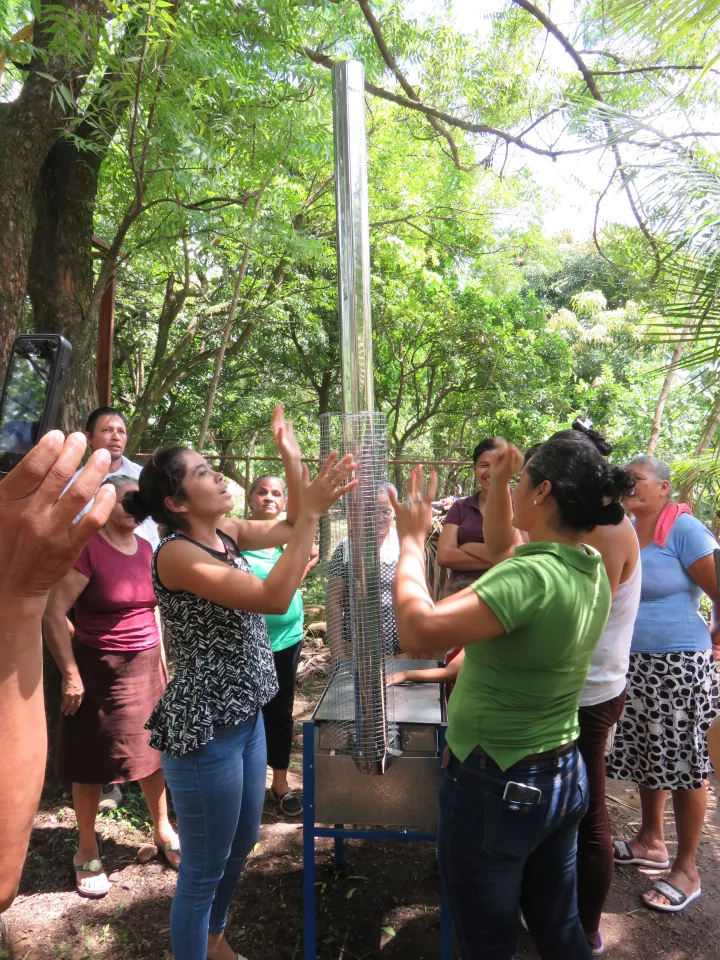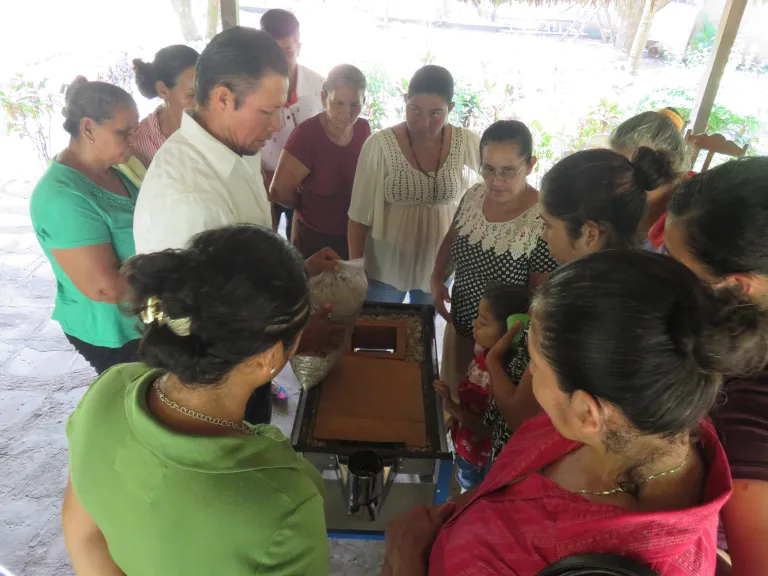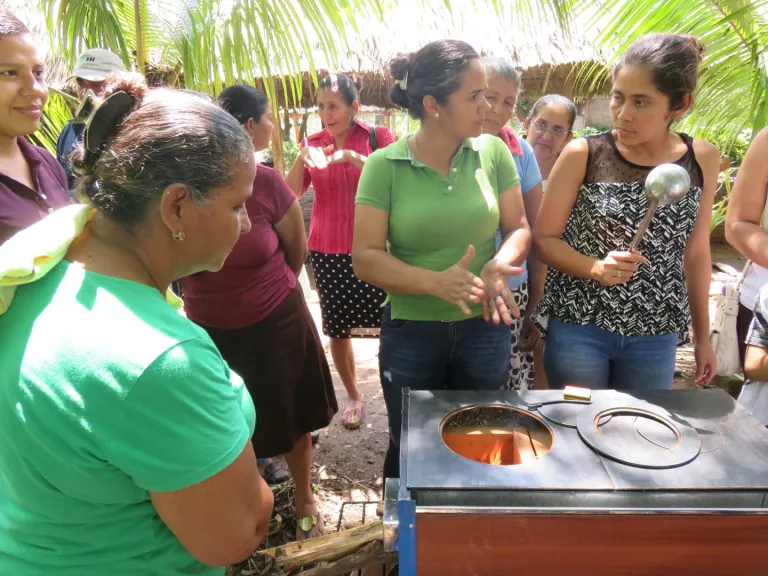First Eco-Stove Installation Project
- Aug 31, 2019
- 3 min read

Rural Communities of Achuapa and San Benito
In Nicaraguan homes, the use of traditional wood stoves is paramount and is one of the most widespread forms of food preparation in the country. Gas stoves are used but found primarily in larger cities where there is access to propane.
Traditional stoves are made of masonry and cement with an opening at one end where wood is fed into the fire box. Although these stoves come in different shapes and styles, they all work on the same principal and consume large amounts of firewood.
Traditional stoves of two of the beneficiaries of the project
One of the more significant problems with these stoves is the effect they have on the people and their health. Their inefficient design enables flue gas and emissions to be released in the cooking area of the home which has a significant effect on family members. The continuous presents of smoke causes problems with the eyes and respiratory issues in women and their children. In the barrio of Edgard Lang, the location our clinic, respiratory related problems continue to top the list of the types of consultations done at the clinic and most of them are children.
Another, secondary problem is sourcing the wood which is generally harvested by family members in forested areas surrounding the communities. Wood can be bought by the cart load for C $ 700.00 ($ 22.60 US) which will last about 3 months but many cannot afford these costs. Buying in bulk is somewhat cheaper and will allow for a reserve in the winter (the rainy season) when dry wood is hard to find.
Eco-Stoves
The introduction of eco-stoves has optimized the traditional method of burning wood in Nicaraguan homes. With technological improvements the ‘Ecological Stove’ is a food cooking system that allows for less firewood, provides for cleaner combustion and reduces the detrimental effects on the environment. Most significant is the improved conditions within the home and the health of the people.
There were a number of models to choose from depending on the activity they are used for. The standard model used in homes is called the ‘Angelica’ which was used in this project.
The ‘Angelica’ stove
A non-profit organization in Managua called PROLEÑA distributes the Angelica Eco-Stove. Their technicians have performed controlled cooking tests to record the performance of the stove in relation to the traditional cooking method. The evaluation is performed in three stages:
Cold Start
Hot Start
Slow Boil
The results obtained for all 3 stages showed that the Angelica used 50% less fuel – a significant monetary saving for families with limited resources.
Project Goals and Expected Results
The original project was to provide a total of 20 families with the improved stove, 10 in each of the communities of Achuapa and San Benito.
FUNDACCO was able to obtain a discount as a non-profit purchaser providing for Nicaraguan families with limited resources and this allowed for 29 families to receive the Angelica stove; 14 in Achuapa, 14 in San Benito and 1 in the barrio of Martinez ‘E’ in the city of Managua.
The benefits now being realized by these families are:
A decrease in cooking time
An environment free of the continuous toxic exposure while cooking
A much more pleasant atmosphere in a kitchen that is smoke free
More time for the housewife to use for educational and other productive activities with the family
In general most communities are concerned for the care of nature and these eco-stoves make better use of firewood, a natural resource that will eventually recover as more eco-stoves are introduced into the communities.
Beneficiaries of the new stove have been trained on their use and are responsible for maintaining them.
Project Execution
A team including community leaders, benefiting families, and Fundacco staff worked together from start to the finish of the project. This collaborative approach requires a high level of trust among all the participating groups and individuals as those 29 families are selected and agree to any conditions attached to the supply and installation of the new kitchens.

Each beneficiary was required to:
Attend a series of meetings to learn of the benefits to their:
Health
Family economy
Reduction of wood consumption
Cooking with a constant temperature
The reduced time required for cooking
Follow the guidelines provided by PROLEÑA technicians on:
How to light the kitchen with firewood and not use plastic or pinewood as fuel
Clean the stove weekly
Not to wash surfaces while they are hot
The removal of ash

Conclusion
With the execution of this project, traditional barriers experienced by housewives who live in rural areas of the country are being broken. The practice of using traditional wood stoves that has been passed from generation to generation will see changes and initially they will go through a period of adaptation.
The beneficiaries were very happy and satisfied with their new stoves and have expressed their gratitude to the generous donors who made this project possible and has improved the living conditions of their families.

